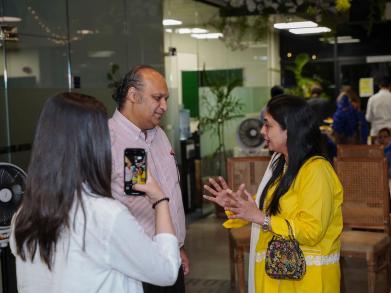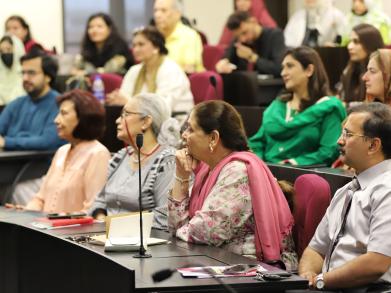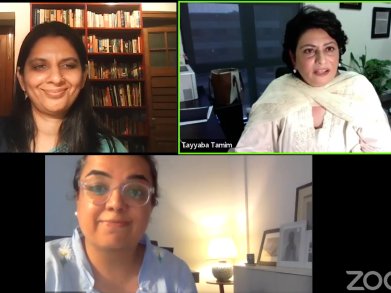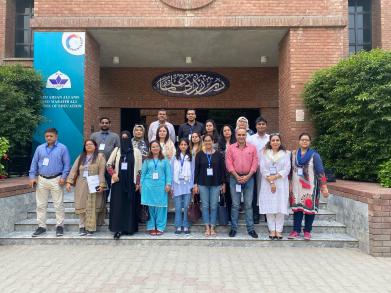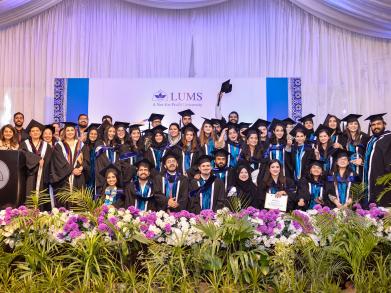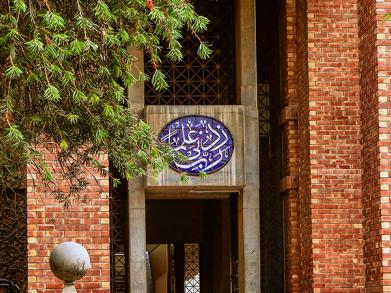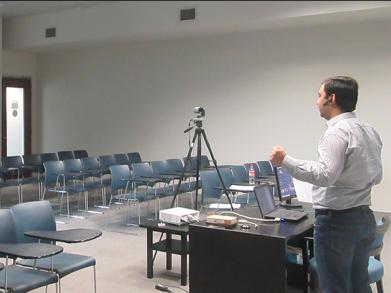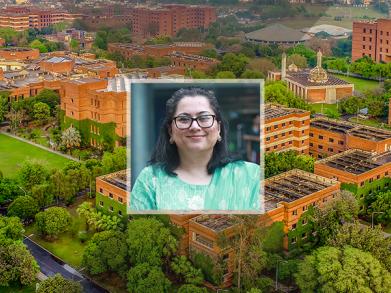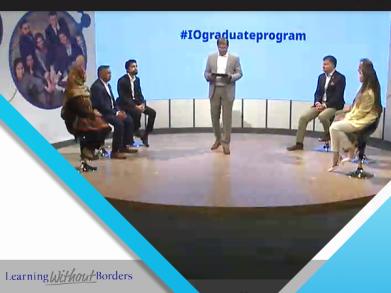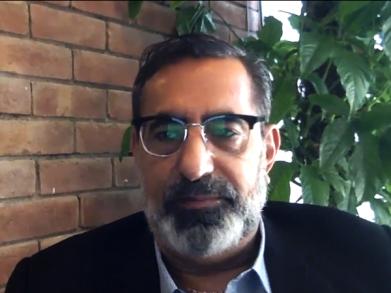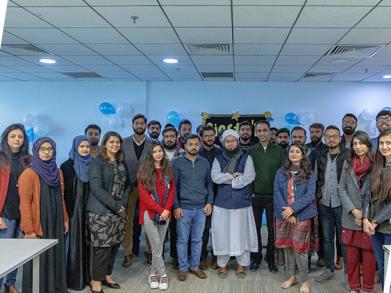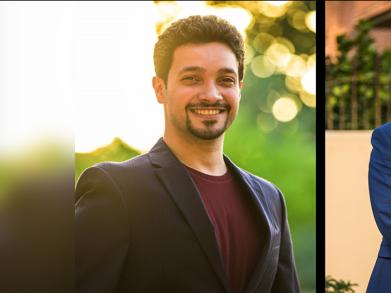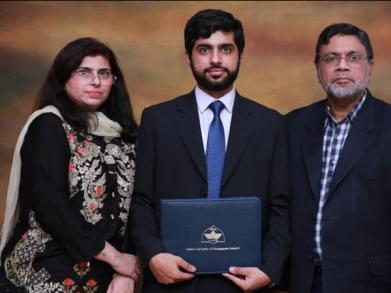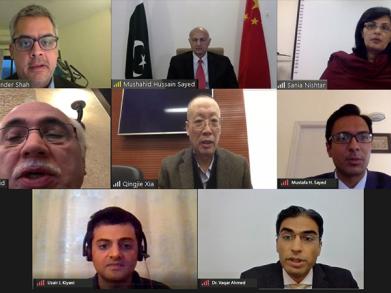Prof. Lant Pritchett Speaks about the Global Learning Crisis
The Syed Ahsan Ali & Syed Maratib School of Education at LUMS hosted a talk by Professor Lant Pritchett, on February 7, 2020. The talk titled, “The Global Learning Crisis: What We Do Know, What We Don't” was jointly organised by the Mahbub Ul Haq Research Centre at LUMS, Harvard Club of Pakistan, Oxbridge Society of Lahore, The Harvard Mittal South Asia Institute, Centre for Economic Research in Pakistan (CERP), Research for Improving Systems of Education (RISE) Pakistan, and Country Research Team (CRT).
Professor Pritchett began the session by sharing that nearly everything that is known about education reforms, everything that donors are bringing in as solutions, won’t work. Addressing a room packed beyond capacity with students, faculty, staff, and prominent figures from the civil society and the education sector in Pakistan, Professor Pritchett cautioned that everyone needs to acknowledge that the world is confronted with a real learning crisis. “This crisis is from top to the bottom, with the poor getting no education at all and the rich getting bad education. It is not just an issue of the developing world, even the elite, are not doing well,” he stated.
He explained that the past 50 years saw a massive expansion of schooling. However, educational outcomes were not as expected after this expansion. “The schooling that this expansion resulted in was a system aligned for access, and most education systems simply became ‘systems of selection’ that ‘selected students who got it right; selected the capable.’ A system aligned for access won’t lead to quality learning. The world is confronted with a global learning crisis because systems of education are not coherent around learning. And changing this will not be done through piecemeal reforms,” he said.
In what he termed the ‘great betrayal’, he remarked that the youth are being betrayed into believing that if they go to school their life opportunities will be different. He elaborated that the reality is that the youth are not emerging from their schooling as qualified adults. “They are deficient in their capabilities, their levels of learning are incredibly low, and they are radically unprepared for real life. The expansion of schooling over the past 50 years has not even produced better individuals or better citizens,” he said. Sharing startling statistics from around the world, he graphically summarised that college graduates have capabilities as low as high school drop outs.
In his scathing critique of global reform agendas, Professor Pritchett singled out some strategies to improve the quality of education that would definitively not work. The first is to ‘wait and see’; and to let technology and economic growth take its course. He said that it would take around 150 years to show any results, given the current quality of education and levels of learning. The second strategy bound to not produce results is ‘more schooling’ - to insist on longer and longer schooling with the belief that if students are not learning in primary, they might learn by secondary or tertiary stages. He shared the example of Indonesia where the fraction of youth completing universal secondary education increased from 40 to 60 percent between the years 2000 and 2014. While this should have led to increased capacities, the average ability of students to answer basic questions actually fell. The third was ‘top-down control’ which has not worked either. Likening education systems to a dysfunctional organisation that has lost its sense of purpose, he stated that you cannot restore purpose with data as you can’t make Pinocchio a real boy by adding more strings or beating a turtle to move.
The alternative proposed was an education system that was coherent around learning, and which focused on universal, early conceptual and procedural mastery of basic skills. “Countries around the world are racing through long curricula by way of rote procedural mastery, leaving no time for conceptual mastery,” he said.
He stressed that this needed to change otherwise the progression of the education trajectory would be difficult. It is, for example, important to understand multiplication or solving fractions at a conceptual level, as opposed algorithmic or mechanical memorizations. Learning entails a transformation in the learner, and that requires an increase in basic capabilities of learners. A coherent education system, which is coherent system-wide, would require the society to agree on reasonable and coherent learning objectives. He explained systems, coherence and incoherence in detail.
The talk was followed by an insightful question and answer session. Responding to questions about equality, inclusion and access, Professor Pritchett said, “In the poorest functioning systems in the world, there is nothing to be included into. Improvement is going to be difficult, and we need to begin with realism about the challenge confronting us.”
Concluding the session, Dr. Arshad Ahmad, Vice Chancellor, LUMS and Dr. Tahir Andrabi, Dean, School of Education expressed their gratitude to participants for attending the talk, with the hope that the session provided meaningful insight into the global learning crisis.






